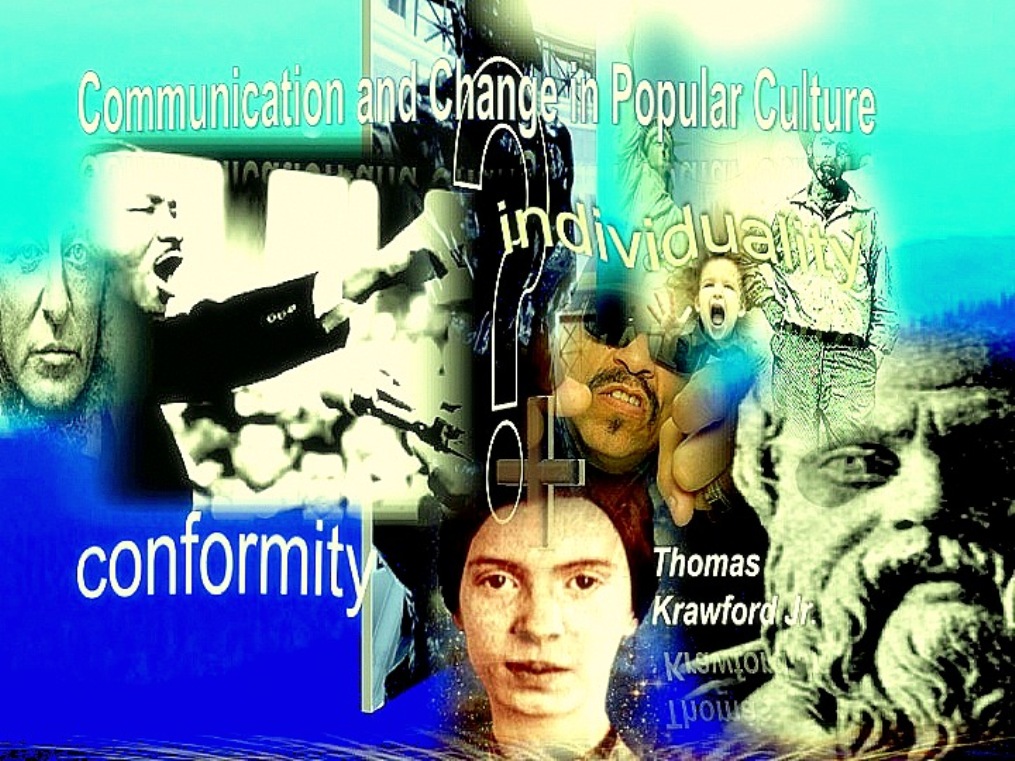This portion of my general theory of subject object interposition in hierarchical text and integration as a model of human thought and behavior is dedicated to the memory of Dr. Vernon C. Polite who recently passed due to a terminal illness. An extraordinary educator, scholar and gentleman, Dr. Polite's example as a tireless and dedicated educator is and always will be one of the broadest shoulders I will ever have the honor of standing upon to see further than other men and women who have come before me.
The National Association of Scholars, according the Wikipedia is a non-profit organization whose opposition to multiculturalism both in the classroom and in pedagogical best practices of teacher education assessment, put it and its members firmly in the camp of those national organizations arguing that academia, currently, is liberally biased (Wikipedia April 18, 2010). I start this entry with this fact because on November 2, 2005, the National Council for the Accreditation of Teacher Education, came under fire from this group on the grounds that the "Dispositions Requirement" was inherently unfair, primarily, to white students in the teacher education program.
The connection of this debate to Dr. Polite's work here at Eastern Michigan is easily enough to understand.
First, in a June 26, 2006 online article A Spirited Disposition Debate, Inside Higher Education staff writer Elia Powers explains that Arthur Wise, then President of NCATE, seeking to outmaneuver his detractors in the NCA, whose opposition, in Wise's view, threatened NCATE's immediate future with the Federal Advisory Board on Education, officially distanced NCATE from any mention of the term "social justice."
...So Wise preempted his detractors. “I categorically deny the assertion that NCATE has a mandatory 'social justice' standard,” Wise testified. “We don’t endorse political and social ideologies. We endorse academic freedom, and we base our standards on knowledge, skills and professional disposition.”Then, in a November 17, 2007 blog entry, Brooklyn College professor of business Mitchel Langbert posted an entry entitled Vernon C. Polite's Provincialism where he argues that Dr. Polite's position on the issue of using the concept of social justice as an integral part of the Disposition Requirement amounts to in his words:
And then, Wise threw the witnesses a bone, announcing that NCATE had decided to eliminate references to “social justice” from its current glossary because “the term is susceptible to a variety of definitions.” Access April 18, 2010.
...a rigid, authoritarian definition of social justice...[that]... will lead not to justice, but to harassment of those who disagree with NCATE and with Dean Polite. It will lead to an authoritarian political correctness...Langbert's position is clear enough to understand and just like the links on his blog to those sites familiar with and supportive of the workings of NAS, his argument is firmly in favor of a laissez-faire attitude towards the goal of improved social outcomes in education as far as minority students are concerned.
....The rigid definition of social justice as equality of outcomes is anything but just in terms of the thinking of Kant, Plato, Augustine, Aristotle and all other important philosophers....All other important philosophers: this phrase is problematic as well as the main reason why Dr. Polite's work over the years, specifically regarding the issue of social justice in education is still so important.
This is why M.A.R.S. (Minority Awareness and Retention Scholars) programs are still vital to the mission of education in an increasingly diverse and complex democratic society.
The next part of this paper and tribute is directed to my fellow peer and colleague Chaz Douglass. (i hope somehow, he gets a chance to read this)
Mitchell Langbert's remarks, in spite of the fact that President Obama is in the White House, indicates that programs like M.A.R.S. may still be on shaky ground, at least as far as the NCTE is concerned. What I want to do here is present a point of view that I hope will be useful in demonstrating how important M.A.R.S is to education for all students regardless of their differences.
The remarks made by Langbert and the position of the NAS claim there are "important" philosophers Dr. Polite's concept of social justice in education fails to recognize. Is that really the case?
When we talk about social justice I don't believe we're talking about just being fair. I believe we're talking about something a a lot more personal. Programs like M.A.R.S. are important because the language that is defined as acceptable is based on an interpretation of those "important" philosophers that doesn't say anything about real people with real problems in the everyday world.
Just because somebody sees a line of thought from Kant, Plato, St Augustine and Aristotle as the only standard that can be used to say someone is more or less competent than another, does not make it so.
For example, what about Socrates to Kant and Hegel to Bertrand Russel? In that line of reasoning people are important: all people, not in spite of their differences, but because of them. In this line of reasoning, the experience of the student as a person is just as important as all the standards of assessment and appropriateness people like Mitch Langbert and the NAS argue should be the only thing we educators think about when we teach students of diverse backgrounds.
I argue that this could not be further from the truth.
What I am talking about is not just Differentiation, but a much more efficient model of this contested classroom instruction. In the diagram we can clearly see how sensitivity to students' strengths is made a focal part of instruction by starting with Pre-assessment moving towards general goals and objectives because of departmental benchmarks not in spite of them.
This is important because it involves student participation n their own education.
Student's self chosen benchmarks are much more their own choice which makes their success in meeting specific goals and objectives a much more certain thing: especially when it comes to meeting the requirements of standardized assessments.
The point of view Mitchell Langbert and the NAS subscribes to is unusable and unnecessary when it comes down to actually teaching ALL the kids across the curriculum. In fact, because more classrooms are becoming more diverse, not less, Differentiation as a best practice is essential to overall classroom success since all of our classroom are diverse and getting more diverse everyday.
Furthermore, when scholars such as Mitchell Langbert present their kind of logic as some kind of informed intellectual history, I argue that they are not using intellectual objectivity or honesty: they are reading their version of the facts to make themselves look good and that is all, period. This kind of self serving intellectual dishonesty is what Dr. Vernon Polite devoted his career as a caring and professional educator to fighting. That is why M.A.R.S. is important not just for us, but for our children and the many generations of future teachers to follow.
How should we define social justice in education in a way anyone can understand?
Equal access to common language, acknowledgment of how everyone's experience contributes to what things mean and a serious curriculum based opportunity for all our students and their families to express their understanding of knowledge as a community based activity where everyone who wants to, has a voice and that voice is heard and not ignored. That's social justice and yes, it is fair and it is just and it is democratic and its worth believing in and fighting for.
Dr Vernon C Polite meant a lot to me: he will be sorely missed, but what means most to me is the dream he spent his life championing. His dream is my dream: and I for one will never rest until that dream is finally and formally realized as a matter of American institutional reality.
Thank you and rest easy Dr. Vernon C Polite.


+of+IMG_9264.jpg)






No comments:
Post a Comment